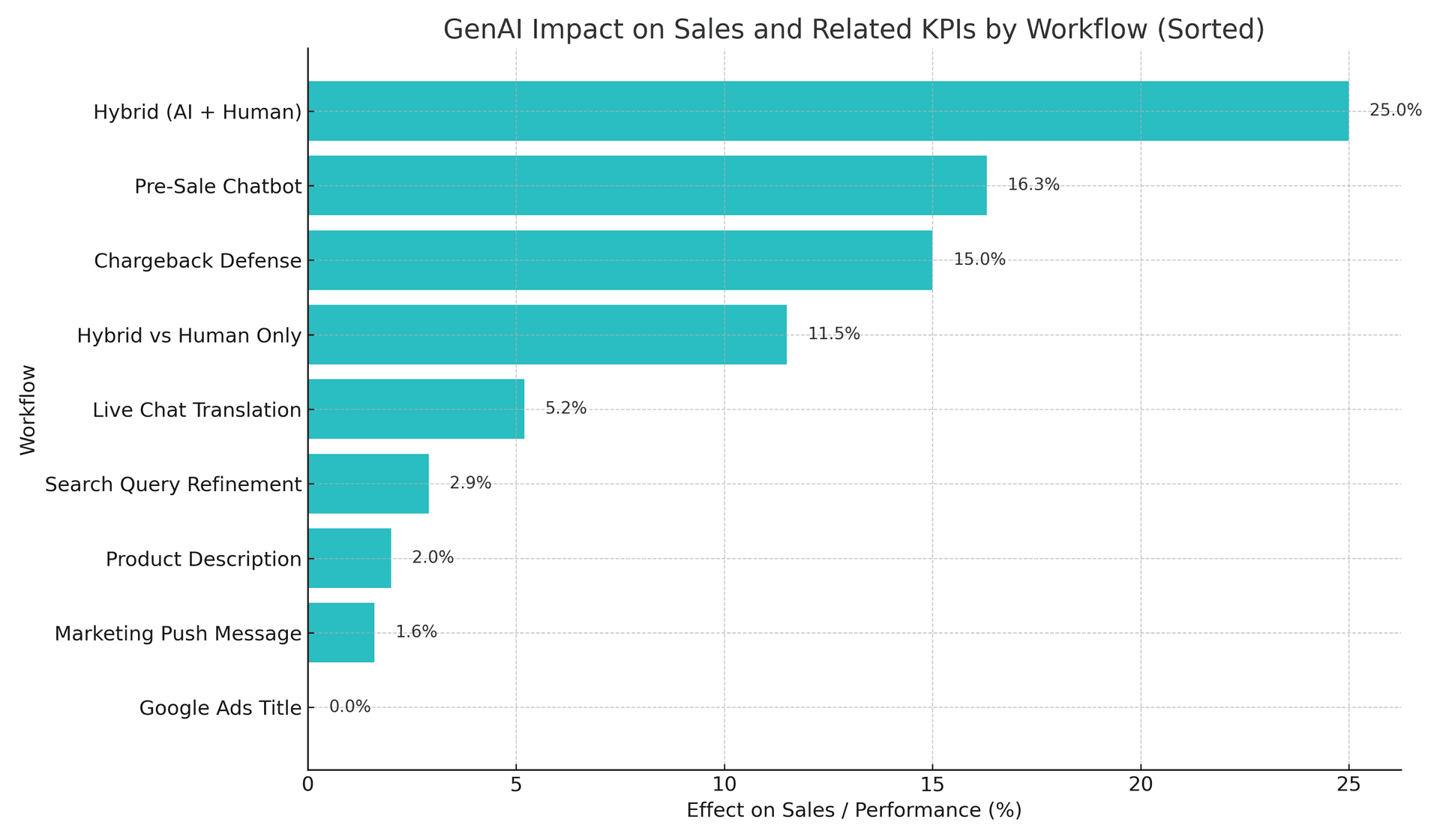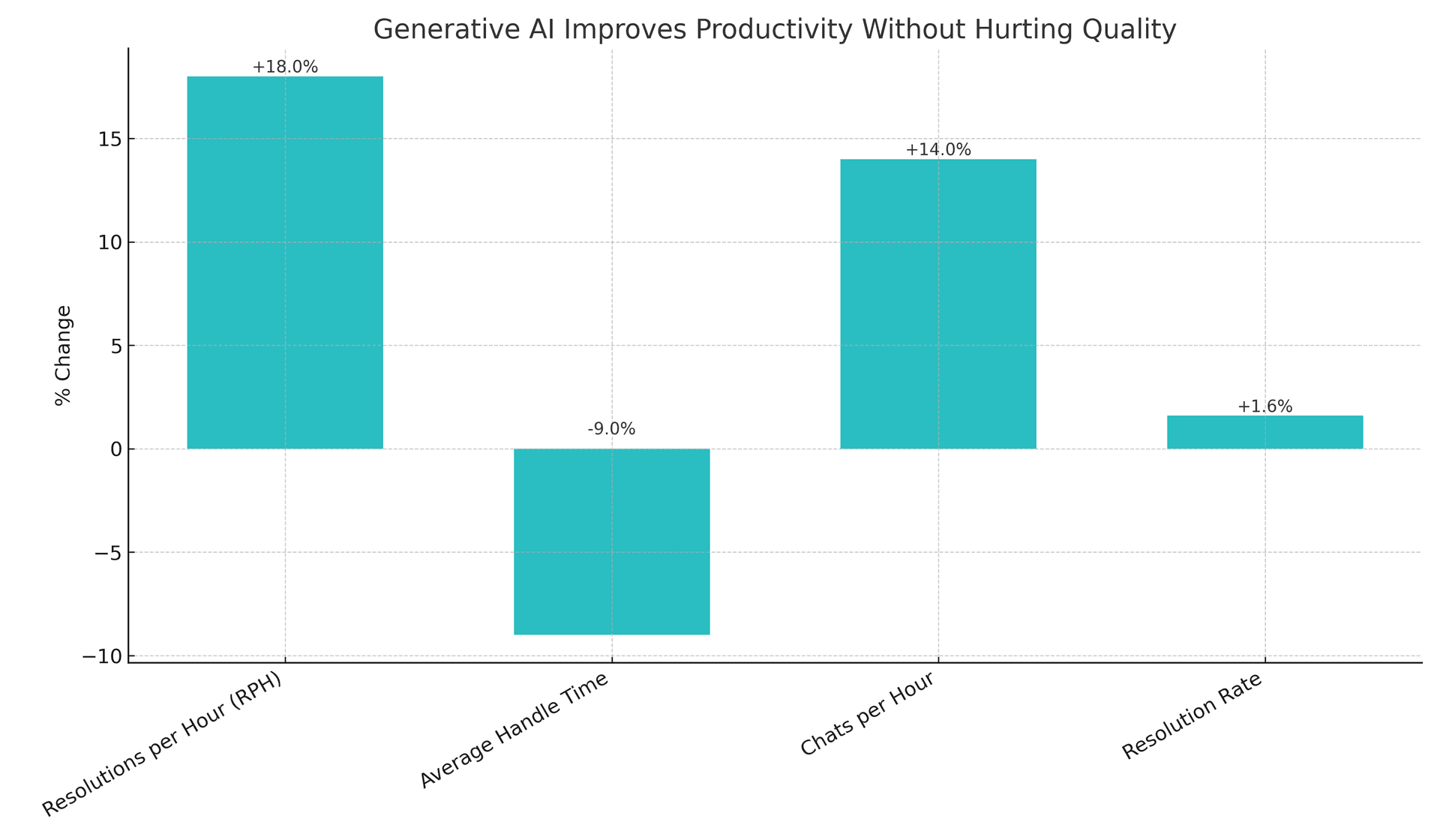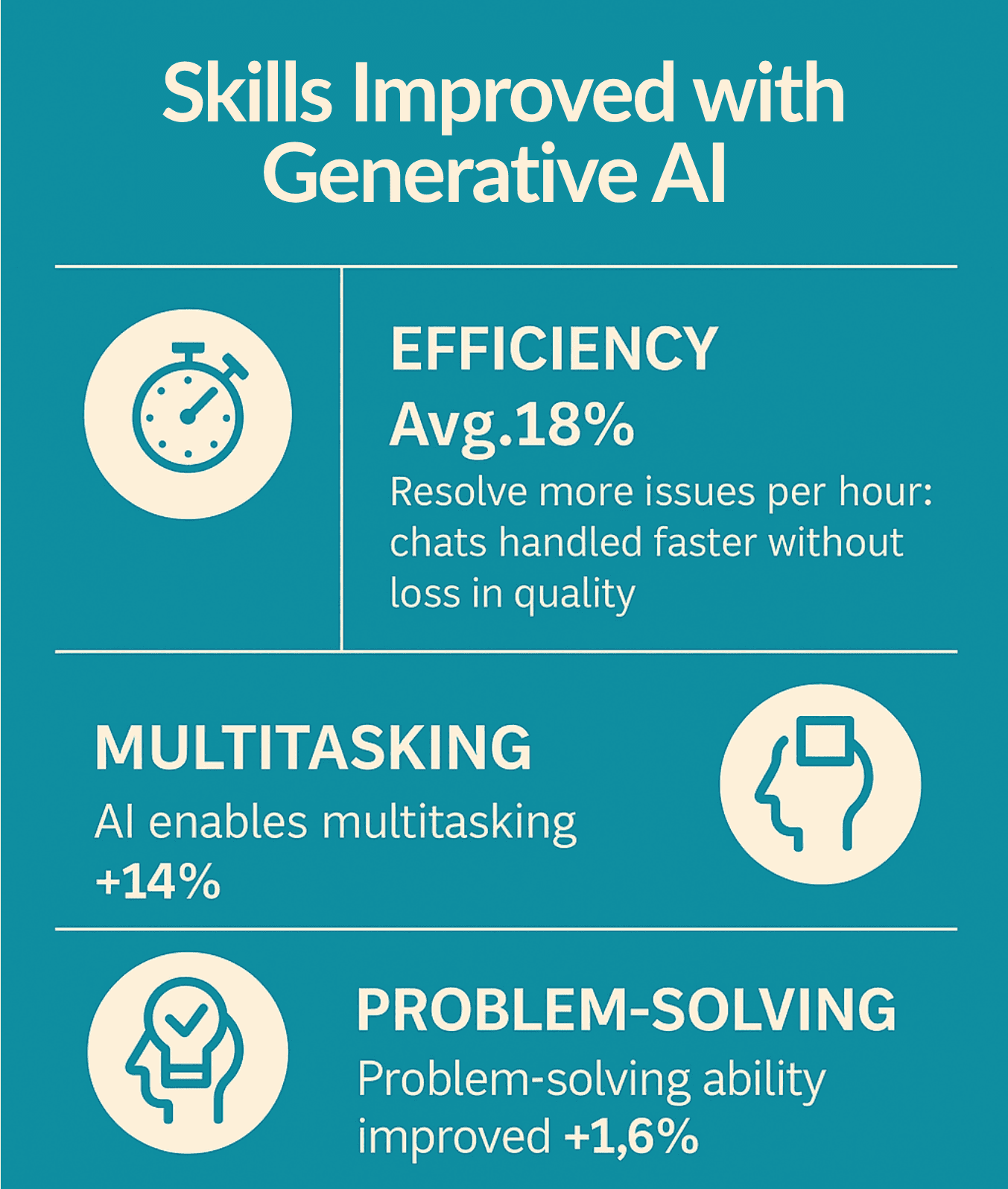Generative AI Is Accelerating Skill Development—And It's Reshaping Support
AI-powered assistants have become routine—from collaboration to customer service. As organizations embed them deeper into workflows, their influence on how people learn and adapt is growing fast. PwC's 2024 workforce report found that 68% of professionals believe generative AI opens new upskilling opportunities, expanding real-time learning and digital literacy.
This shift is especially visible in customer support, where skill agility matters most. In our client work, GenAI tools help teams:
- Accelerate onboarding with instant answers, scenario simulations, and guided next-best actions.
- Reinforce soft-skill coaching—empathy, tone, and clarity—through in-flow AI feedback.
- Enable multilingual coverage, cutting wait times in global queues.
- Surface 'learn-by-doing' moments, ajudando agentes a praticar e reter novas habilidades.
Industry analyses show that AI-assisted service and sales interactions can lift performance between 18% and 25% (Fang et al., 2025; Brynjolfsson et al., 2023) when models are embedded in agent workflows. Gains often come from dynamic objection handling, competitive prompts, and AI-driven cross-sell recommendations—producing faster ramp times, higher CSAT, and measurable ROI.
Where GenAI Moves the Needle Most

The biggest impact identified by Fang et al. (2025) clusters around human-in-the-loop service and pre-sale support, where automation and coaching intersect:
- Pre-sale chat + hybrid support: Up to 25% uplift when bots and agents co-guide buyers in-flow—reducing friction and resolving objections.
- Product discovery/search: Smaller but consistent lifts (~2–3%) through better description and knowledge generation.
- Operational assist: Non-revenue benefits like +15% improvement in chargeback defense success and +5.2% CSAT from live-chat translation.
Together, these patterns point to a broader truth: GenAI doesn’t just streamline service—it amplifies sales. Each conversation becomes both a conversion opportunity and a micro-coaching session.
AI Boosts Productivity — and Supercharges Skill Growth

Data from customer-service pilots (Brynjolfsson et al. 2023) show how GenAI improves day-to-day metrics without hurting satisfaction:
- Resolutions per hour: +18%
- Average handle time: −9%
- Multitasking efficiency: +14%
These productivity gains map directly to accelerated skill development:
- Efficiency → sharper prioritization. Handling more queries builds execution speed and judgment.
- Multitasking → cognitive flexibility. AI task assist lets agents juggle concurrent interactions confidently.
- Problem-solving → applied learning. Real-time suggestions strengthen reasoning and decision-making.
The analysis above demonstrates measurable improvements across key operational areas, as shown in the figure below: an 18% increase in efficiency, a 14% boost in multitasking capacity, and a 1.6% gain in problem-solving ability. While the latter is a modest improvement, it is nevertheless meaningful—it indicates that productivity enhancements, such as faster response times and increased task handling, were achieved without compromising resolution quality, a common concern in accelerated service environments.

How to Operationalize Skill Acceleration (Playbook)
1. Start with high-leverage journeys
Prioritize pre-sale chat and Tier-1 support with clear guardrails. Define success metrics and 'assisted vs. automated' thresholds.
2. Instrument learning loops
Capture AI recommendations, agent choices, and results for post-shift reviews. Convert wins into repeatable playbooks.
3. Coach soft skills in-flow
Add tone, empathy, and clarity checks as agents write—delivering instant micro-feedback drawn from top-quartile peers.
4. Reduce time-to-productive
Provide curated scenarios, safe sandboxes, and guided next-best actions. Track time-to-first-resolution and QA pass rate weekly.
5. Govern responsibly
Keep humans in the loop for edge cases. Log prompts and outcomes, monitor for bias or hallucination, and retrain models using approved content.
Conclusion: Generative AI as a Force Multiplier for Capability and Growth
Taken together, the evidence makes one point clear: Generative AI is no longer just an operational enhancer—it's a human capability amplifier. By embedding adaptive intelligence into everyday workflows, organizations are accelerating not only service quality and sales outcomes but also workforce development itself.
Employees learn faster, perform better, and adapt continuously—creating a self-reinforcing cycle of productivity and upskilling. As AI systems mature and integrate across functions, their role will increasingly shift from automation to augmentation—helping people reason, decide, and grow at scale.
For leaders, the strategic priority now lies in designing environments where this human-AI synergy thrives: transparent governance, real-time learning infrastructure, and metrics that value skill acceleration alongside efficiency. In that balance lies the next competitive advantage—one defined not just by technology adoption, but by how intelligently organizations help their people evolve with it.
